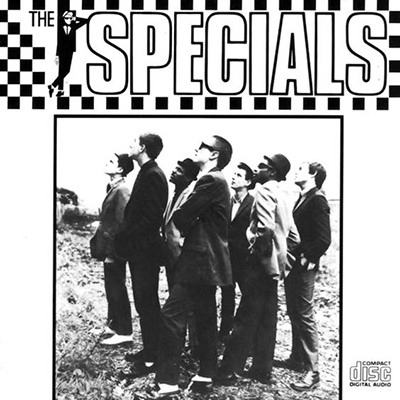The beat goes on...
 Sunday, January 12, 2020 at 02:04PM
Sunday, January 12, 2020 at 02:04PM Just visiting some of the archives (the wayback machine), and I found this post about music and writing.
I'm currently writing to Japanese traditional music - which is very cool.
Anyway - hope you enjoy.

You probably noticed the latest fbook trend—and it was a good one: without thinking too much, list off your top ten albums in high school.
Now after riffing on some serious Floyd, or the kinda sappy, (but beautifully profound) 10 CC, I wondered how, me, a prairie kid in smallsville Saskatchewan got into the first wave of ska music in the late 70's. (I blame Saturday Night Live, which The Specials appeared on, and as they say: changed everything. Who were these guys? What was this music? No one I knew was listening to it—what was it called? Ska. And I also knew it was about the coolest thing I'd ever heard and seen. Some guys in the band didn't play instruments, they just jumped around. And when the song was done they dropped their instruments, and walked off. Okay, okay, major ska digression. Send a message to Rudy... and I'm back).
So this all got me thinking about the importance relationship between music and writing. In so many ways these two go together. The best scenes flow like a great song, there is tension, release, a build, an overall mood, vibe, or groove. This vibe is on a sentence level, a paragraph, page, and whole chapter level—entire books have a soundtrack to them even if they never ever get made into a movie.
The idea of music in fiction really sunk into me when I was writing my first novel, Correction Line. A character has just escaped from a house that is about to blow up (long story why, read the novel, it's cool)—and he just about clears the area before... boom. Now, I pictured him not explosively flying across the field, but floating along in the air, dreamlike, the blast carrying him, and depositing him on a somewhat soft bush. Dean Martin singing "Sway" popped into my brain, and I said, yes. Like that. I actually have the character thinking about that song before he blacks out. But even if he never mentions the Dean Martin tune, the feeling of that song pervades the scene.
I've read about writers like Stephen King writing to hard rock while doing first drafts (or so I'm guessing it's first drafts—I am not sure how you could listen to music while doing hard editing... it's a different part of the brain.) Not everyone can do this, it requires an odd separation, you're listening to the music, but you're not listening at the same time. The music supplies a heart beat to the action. And if you get swayed over too much to the song, you get lost, and pause, stop, or just write drivel (hey, I write drivel when I'm not listening to music, too! So there's that.)
For my crime novel, Surf City Acid Drop, the name of the novel came from its soundtrack. It was a solid wall of surf rock whenever I started pounding out scenes with my protag Luke Fischer. I'd put on tunes by Dick Dale for the fight scenes or the Sandals when things got mellow, and maybe a bit romantic. The mellow vibe of the Theme from Endless Summer provided so much of the setting, and even what the main charactedr was all about, that I wanted to name the novel after the song. The only problem was Endless Summer sounded like a really cheesy 80s romance novel. I could picture the cover: flowing hair, biceps, and a setting sun across the pacific were involved.
Fall in One Day needed tunes from the era (mostly 1973) to get me in the mood, and create the right atmosphere. While writing the novel, I rediscovered my deep love of Steely Dan. in fact, I playing it so much while writing that at the end I loved them even more than when I first heard them. Geeky note: at one point, in an early draft, every chapter of Fall in One Day had a dedicated Steely Dan song. While reading, and rewriting these chapters, I would put that song on repeat, and see if it fit the chapter. Maybe I'll dig up those recipe cards at some point and show the evidence.
But like I said, when it comes time to rewrite and edit... I can't really listen to anything. Maybe to kickstart myself, but eventually it is just me, the story, and the clicking on my laptop. (Which, when I think of it would make a cool ska riff—just add horns, and a jumping around guy.)
In my WIP novel, I am still trying to find that soundtrack. I've bounced around with some alt-Country (Western States, a now defunct Canadian Band), Eric Clapton and J.J. Cale's amazing album: The Road to Escondido, and some mood music from The Great Lake Swimmers. I feel like when I finally nail the soundtrack for this new novel, then I will finally find its centre.
By the way, I attempted to write this blog post to music (video below), but it only somewhat worked. There was no groovy fight scene, or someone busting up a bar, or driving a car around a California ocean curve, in this post... but as I listened, damn, I wanted there to be.
Tell me what you listen to when you write, either in the comments, or jump over to twitter, and tell me your own writing vibe.
Here was my writing music for the post: the Kings - Switching to Glide.




